FLANNAN ISLE
by: Wilfrid Wilson Gibson
 HOUGH three men dwell on Flannan Isle
HOUGH three men dwell on Flannan Isle
- To keep the lamp alight,
- As we steer'd under the lee, we caught
- No glimmer through the night!
- A passing ship at dawn had brought
- The news; and quickly we set sail,
- To find out what strange thing might all
- The keepers of the deep-sea light.
- The winter day broke blue and bright,
- With glancing sun and glancing spray,
- As o'er the swell our boat made way,
- As gallant as a gull in flight.
- But, as we near'd the lonely Isle;
- And look'd up at the naked height;
- And saw the lighthouse towering white,
- With blinded lantern, that all night
- Had never shot a spark
- Of comfort through the dark,
- So ghastly in the cold sunlight
- It seem'd, that we were struck the while
- With wonder all too dread for words.
- And, as into the tiny creek
- We stole beneath the hanging crag,
- We saw three queer, black, ugly birds--
- Too big, by far, in my belief,
- For guillemot or shag--
- Like seamen sitting bold upright
- Upon a half-tide reef:
- But, as we near'd, they plunged from sight,
- Without a sound, or spurt of white.
- And still too mazed to speak,
- We landed; and made fast the boat;
- And climb'd the track in single file,
- Each wishing he was safe afloat,
- On any sea, however far,
- So it be far from Flannan Isle:
- And still we seem'd to climb, and climb,
- As though we'd lost all count of time,
- And so must climb for evermore.
- Yet, all too soon, we reached the door--
- The black, sun-blister'd lighthouse door,
- That gaped for us ajar.
- As, on the threshold, for a spell,
- We paused, we seem'd to breathe the smell
- Of limewash and of tar,
- Familiar as our daily breath,
- As though 'twere some strange scent of death:
- And so, yet wondering, side by side,
- We stood a moment, still tongue-tied:
- And each with black foreboding eyed
- The door, ere we should fling it wide,
- To leave the sunlight for the gloom:
- Till, plucking courage up, at last,
- Hard on each other's heels we pass'd
- Into the living-room.
- Yet, as we crowded through the door,
- We only saw a table, spread
- For dinner, meat and cheese and bread;
- But all untouch'd; and no one there:
- As though, when they sat down to eat,
- Ere they could even taste,
- Alarm had come; and they in haste
- Had risen and left the bread and meat:
- For on the table-head a chair
- Lay tumbled on the floor.
- We listen'd; but we only heard
- The feeble cheeping of a bird
- That starved upon its perch:
- And, listening still, without a word,
- We set about our hopeless search.
- We hunted high, we hunted low,
- And soon ransack'd the empty house;
- Then o'er the Island, to and fro,
- We ranged, to listen and to look
- In every cranny, cleft or nook
- That might have hid a bird or mouse:
- But, though we searched from shore to shore,
- We found no sign in any place:
- And soon again stood face to face
- Before the gaping door:
- And stole into the room once more
- As frighten'd children steal.
- Aye: though we hunted high and low,
- And hunted everywhere,
- Of the three men's fate we found no trace
- Of any kind in any place,
- But a door ajar, and an untouch'd meal,
- And an overtoppled chair.
- And, as we listen'd in the gloom
- Of that forsaken living-room--
- O chill clutch on our breath--
- We thought how ill-chance came to all
- Who kept the Flannan Light:
- And how the rock had been the death
- Of many a likely lad:
- How six had come to a sudden end
- And three had gone stark mad:
- And one whom we'd all known as friend
- Had leapt from the lantern one still night,
- And fallen dead by the lighthouse wall:
- And long we thought
- On the three we sought,
- And of what might yet befall.
- Like curs a glance has brought to heel,
- We listen'd, flinching there:
- And look'd, and look'd, on the untouch'd meal
- And the overtoppled chair.
- We seem'd to stand for an endless while,
- Though still no word was said,
- Three men alive on Flannan Isle,
- Who thought on three men dead.
- To keep the lamp alight,
| 'Flannan Isle' is reprinted from An Anthology of Modern Verse. Ed. A. Methuen. London: Methuen & Co., 1921 |
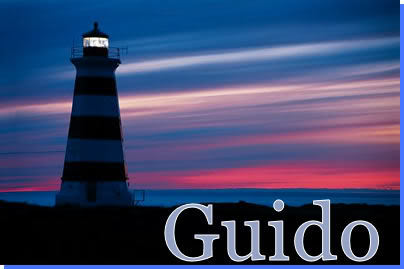



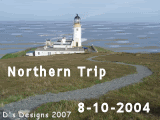



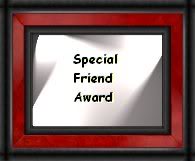

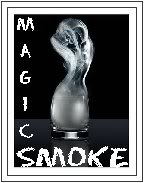
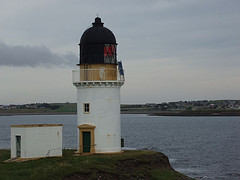
I remember having to learn and recite this at school, it's a very atmospheric piece. Jeannette xx
ReplyDelete"Flannan Isle" wow Guido, thanks for posting this, a joy to read. Stay well luv, CATHY
ReplyDeleteI got such a weird feeling reading this poem, it is very good. I felt like I was right there. It reminds me of an obiturary so to speak. I really liked it. http://journals.aol.com/carolhehe/GypsyPaths
ReplyDeleteAwesome poem!!!
ReplyDeleteStevie
x